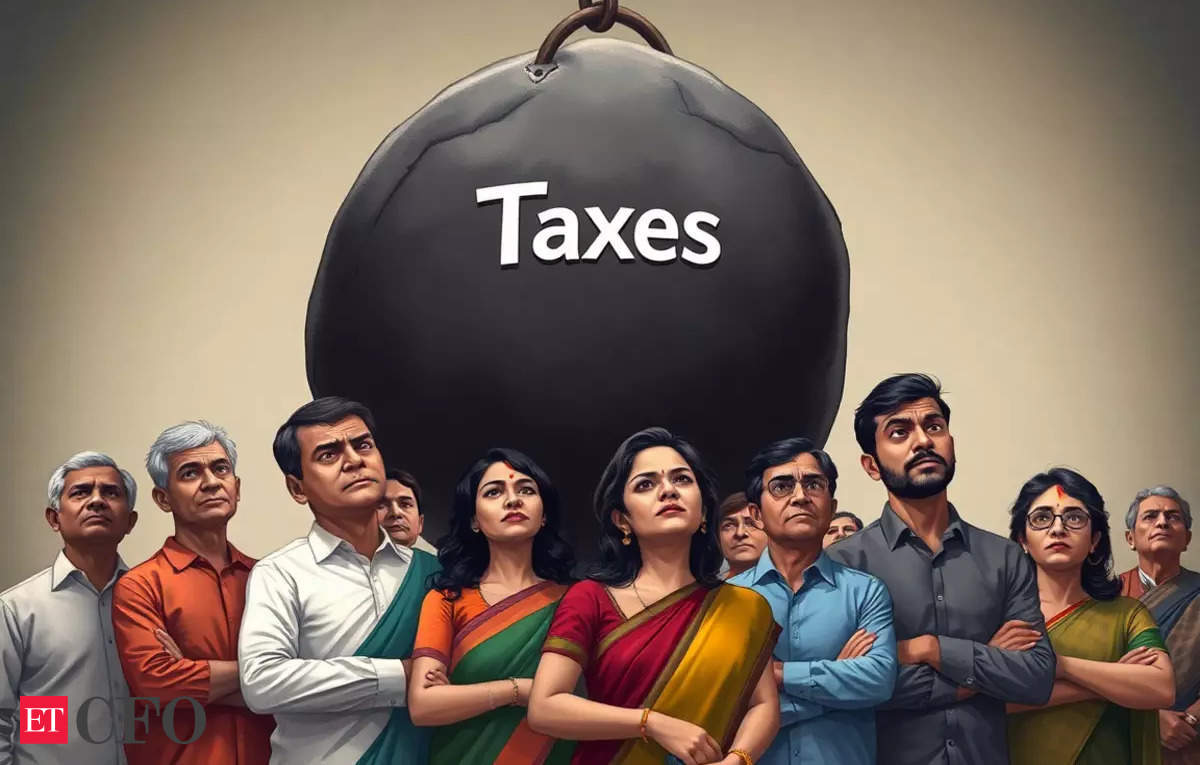ITR-3 for the Financial Year (FY) 2023-24 and Assessment Year (AY) 2024-25 is available for filing on Income Tax Portal, and Last date to file ITR is 31st July in non Audit case and 31st October in case of Audit, so it is important to know who can file ITR 3 and Who cannot file.
ITR-3 is an Income Tax Return form in India, which is used by individuals and Hindu Undivided Families (HUFs) who have income from profits and gains of business or profession.
Who can file ITR 3
ITR-3 is filed by individuals and Hindu Undivided Families (HUFs) who:
- Have income from profits and gains form Business or Profession.
- Are Partners in a firm
- Need to report income from various sources including business or profession, house property, capital gains, and other sources.
- Showing Presumptive Income more then the limits specified
- If you cannot choose ITR 1,2,4
- Need to Maintain Mandatory Books of accounts u/s 44AA
Who can not file ITR 3
- Salaried Individuals: Individuals who earn income solely from salaries and do not have income from profits and gains of business or profession should not file ITR-3. They typically file other ITR forms such as ITR-1 or ITR-2, depending on their sources of income.
- Individuals with Capital Gains or Other Sources: If individuals have income from capital gains, house property, or any other sources apart from business or profession, they should not file ITR-3 unless they are also partners in a firm.
- HUFs without Business or Professional Income: Hindu Undivided Families (HUFs) that do not have income from profits and gains of business or profession should not file ITR-3. They should choose the appropriate ITR form based on their income sources.
- Individuals with Only Salary Income: If individuals derive income only from salaries and do not have any other sources of income such as business, profession, capital gains, or house property, they should not file ITR-3.
- Individuals with No Business or Professional Activity: Individuals who are not engaged in any business or professional activity and do not earn income from such sources should not file ITR-3.
Why should file ITR 3
- Income from Business or Profession: If you have income from profits and gains of business or profession, you should file ITR-3. This includes sole proprietors, freelancers, consultants, professionals, and partners in a partnership firm.
- Partnership Income: If you are a partner in a partnership firm and derive income from the firm’s profits and gains, you should file ITR-3. This is particularly relevant if you do not have income from salaries, capital gains, or any other sources except business or profession.
- Comprehensive Reporting: ITR-3 allows for comprehensive reporting of income from various sources, including business or profession, house property, capital gains, and other sources. It accommodates the detailed computation of income from business or profession, expenses, depreciation, etc.
- Tax Compliance: Filing ITR-3 ensures compliance with the tax laws of India. It is mandatory for individuals and HUFs meeting the specified criteria to file their income tax returns within the stipulated deadline.
- Avoid Penalties: Failure to file income tax returns or filing incorrect returns may attract penalties and legal consequences. Filing ITR-3 accurately and on time helps individuals and HUFs avoid such penalties.
- Claim Deductions and Refunds: By filing ITR-3, individuals and HUFs can claim deductions under various sections of the Income Tax Act, thereby reducing their tax liability. They can also claim refunds if excess taxes have been paid.
- Documentation and Record Keeping: Filing ITR-3 requires individuals and HUFs to maintain proper documentation and records of their financial transactions, income, and expenses, which is beneficial for financial planning and audit purposes.
When is it mandatory to file ITR 3
- Income from Business or Profession: If you have income from profits and gains of business or profession, you are required to file ITR-3. This includes sole proprietors, freelancers, consultants, professionals, and partners in a partnership firm.
- Partnership Income: If you are a partner in a partnership firm and derive income from the firm’s profits and gains, you must file ITR-3. This is applicable if you do not have income from salaries, capital gains, or any other sources except business or profession.
- Prescribed Criteria: The Income Tax Act, 1961, mandates the filing of ITR-3 for individuals and HUFs meeting the specified criteria mentioned above.
- Crossing Income Thresholds: It’s also essential to file ITR-3 if your total turnover exceeds 1 Crore because of Applicability of Tax Audit.
- Specific Reporting Requirements: If your income falls under specific reporting requirements as per the Income Tax Act, such as income from foreign assets or investments, you may be required to file ITR-3.
- Tax Treaty Obligations: If you are a resident in India and have income taxable in India as well as in another country due to tax treaties, you may need to file ITR-3 to fulfill your tax obligations.
- Who is exempted for filing ITR 3
Individuals and Hindu Undivided Families (HUFs) may be exempted from filing ITR-3 in India if they don’t meet specific criteria set by the Income Tax Department. These exemptions generally apply to taxpayers whose income falls below the threshold limits or those whose income sources do not require the filing of ITR-3.
For instance, salaried individuals whose only source of income is their salary and do not have any income from profits and gains of business or profession typically do not need to file ITR-3. Similarly, individuals with income below the basic exemption limit prescribed by the Income Tax Department may also be exempted from filing ITR-3.
Moreover, if an individual or HUF has income from specific sources that are not covered under ITR-3, such as income solely from salary, capital gains, or other exempted sources, they would not be required to file ITR-3.
What are the documents typically required for filing ITR-3?
- PAN Card: Permanent Account Number (PAN) card is mandatory for filing income tax returns.
- Income Statement: Detailed statements showing income earned from business or profession, including turnover, gross receipts, expenses, and profits.
- Profit and Loss Account: Statement reflecting profits and losses incurred in the business or profession.
- Balance Sheet: Financial statement showing assets, liabilities, and equity at a specific point in time, typically prepared for the business or profession.
To know the exact Requirement of who is to maintain Books of Accounts as per Income Tax Act, watch below video:
- Bank Statements: Bank statements related to business transactions, receipts, and payments.
- Invoices and Receipts: Original bills, invoices, and receipts for expenses incurred in the course of business or profession.
- TDS Certificates: Certificates received for tax deducted at source (TDS) on income other than salary.
- Form 16A: If applicable, Form 16A for TDS on income other than salary.
- Capital Gains Statement: Details of capital gains earned during the financial year, if any.
- House Property Details: Information regarding income from house property, including rental income, interest on home loans, and property taxes paid.
- Investment Proofs: Documents related to investments made under various tax-saving schemes such as Provident Fund (PF), Public Provident Fund (PPF), Equity Linked Savings Scheme (ELSS), etc.
- Other Income Documents: Documents related to any other sources of income such as interest income, dividend income, etc.
- Tax Payments: Details of advance tax and self-assessment tax payments made during the financial year.
- Aadhaar Card: Aadhaar card may be required for e-verification of the tax return.
- Bank Account Details: Bank account details for receiving any tax refunds.
These documents are essential for accurately reporting income, claiming deductions, and ensuring compliance with tax laws while filing ITR-3.
How to file ITR 3
F&Q
1.Can a salaried individual file ITR-3?
Generally, salaried individuals should not file ITR-3 unless they also have income from profits and gains of business or profession in addition to their salary income.
2. Income From Salary, and doing Intraday and F&O in share market, which ITR to file?
Because Intraday is treated as Speculation Business and F&O is treated as Normal Business so you have to file ITR 3 in this case.
3.How is tax calculated in ITR-3?
Tax is calculated in ITR-3 based on the total income earned during the financial year and the applicable income tax slab rates. Deductions and exemptions under various sections of the Income Tax Act are subtracted from the total income to arrive at the taxable income, on which tax is then calculated.
4.What if I make a mistake in filing ITR-3?
If you make a mistake while filing ITR-3, you can file a revised return to correct the errors. The revised return can be filed within a certain time limit from the end of the assessment year or before the completion of assessment, whichever is earlier.
5.What if I fail to file ITR-3 on time?
Failure to file ITR-3 on time may attract penalties and interest under the Income Tax Act. It’s essential to file the return within the due date to avoid such consequences.
6.Can I carry forward losses in ITR-3?
Yes, certain types of losses such as business losses can be carried forward and set off against income in future years. However, there are specific conditions and limitations prescribed under the Income Tax Act for carrying forward and set off of losses.
7.Can I file ITR-3 if I’m a director in a company?
If you are a director in a company and receive salary income, you should file ITR-2 instead of ITR-3. However, if you have income from business or profession in addition to your salary income, you may need to file ITR-3.
8.What if I have business losses in ITR-3?
Business losses incurred during the financial year can be set off against income from any other source except for salary income. If the losses cannot be fully set off in the current year, they can be carried forward to subsequent years for set off against future profits.
Visit www.cagurujiclasses.com for practical courses











